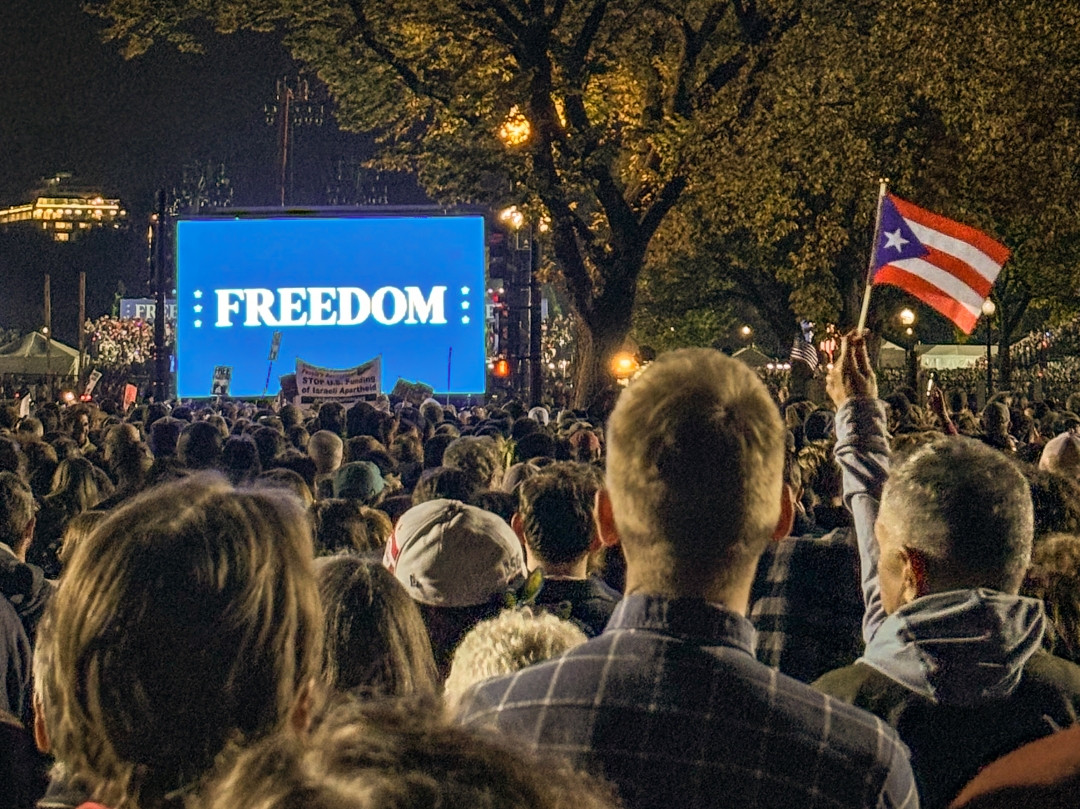WASHINGTON — At Donald Trump’s rally at Madison Square Garden Sunday, comedian Tony Hinchcliffe’s set overshadowed the lineup of warm-up acts, drawing sharp criticism for a series of jokes that targeted various communities, including incendiary remarks about Puerto Rico.
His comments both likened Puerto Rico to “a floating island of garbage” and perpetuated negative stereotypes about Latinos, sparking an outrage that spans well beyond party lines.
Now, as both Trump and Vice President Kamala Harris make their final push ahead of the election, Hinchcliffe’s comments could mobilize Puerto Rican swing state voters looking to respond to his divisive rhetoric.
According to 2020 U.S. Census Bureau estimates, more than 470,000 people of Puerto Rican descent live in Pennsylvania, with 132,000 in North Carolina and 124,000 in Georgia. Tens of thousands more are in Arizona, Wisconsin, Nevada, and Michigan —all key swing states that could influence the upcoming election.
Although Puerto Ricans living on the mainland make up a small percentage of the U.S. voting age population, political scientist Carlos Vargas-Ramos, Director of Public Policy at the Center for Puerto Rican Studies at Hunter College, said they can be crucial in swing states.
“In crucial battleground states, for instance, Pennsylvania, the citizen-eligible population that is Puerto Rican represents three percent of the electorate, which in a state that is divided 50-50 or 48-48 can be very significant,” Vargas-Ramos said.
Lori McFarland, chair of the Lehigh County Democratic Committee in Pennsylvania, said that when it comes to this election, the weight of the world is on their shoulders.
The largest city in her county, Allentown, is home to 34,000 Puerto Ricans just about 60 miles from Philadelphia. After Hinchcliffe’s controversial remarks, Trump campaigned in Allentown on Tuesday as a means of damage control, seeking to regain voters he may have alienated.
McFarland said one of her top priorities is mobilizing the Puerto Rican community to the polls as she thinks the recent controversy may have ignited a new sense of motivation in her county.
She pointed towards recent segments on La Mega Radio, a local Spanish-language radio show, as evidence of shifting mindsets. In an interview with CNN, La Mega host, Victor J. Martinez said that on his show, he received a call from a Puerto Rican listener who said that after the Madison Square Garden rally he was ashamed of his decision to vote for Trump by mail, and is now putting his anger towards encouraging his friends and family members to vote for Harris instead.
Puerto Rico and Voting History
The incident has brought Puerto Rican voters into the spotlight. But the history of Puerto Rican voting rights has always been complicated.
The U.S.-Puerto Rican relationship traces back to the U.S.’s acquisition of the island as a territory following the Spanish-American War of 1898. The U.S. government granted Puerto Ricans U.S. citizenship in 1917 through the Jones-Shafroth Act, but the island contentiously remains a U.S. territory.
Today, around two-thirds of Puerto Ricans live in the mainland U.S. With state residency, Puerto Ricans are eligible to vote in presidential and congressional elections, a citizenship right those living on the island do not share.
Professor Amílcar Antonio Barreto, chair of the Department of Cultures, Societies and Global Studies at Northeastern University, said Puerto Ricans’ complicated voting rights are a product of the American federalist system.
“There’s your citizenship, but to fully exercise your citizenship, you have to live in a state, not a territory,” Barreto said.
Since Sunday, Puerto Rican figures in all areas of influence, including religion, politics and music, have denounced the offensive comments, even if they are ineligible to vote for U.S. president.
Notably, Puerto Rican reggaeton star Benito Martínez Ocasio, known as Bad Bunny, reposted a video of Vice President Kamala Harris’ policies for Puerto Rico to his 45.7 million Instagram followers soon after Hinchcliffe’s set.
Jennifer González-Colón, Puerto Rico’s Resident Commissioner, responded to the comments, calling them “despicable, misguided and disgusting.”
González-Colón, who is the sole Congressional representative for the island and a Republican, said the comments “do not represent the values of the GOP.”
The comments were a heavy blow to Republicans and their mobilization of more conservative Puerto Rican voters.
Barreto called Hinchcliffe’s gaffe “a classic shot in the foot” for a campaign intent on expanding their voter base and courting Latino voters in competitive states.
“He needs to keep his base happy with red meat, and anti Puerto-Rican rhetoric is just the thing that many in his base want to hear,” Barreto said.
Vargas-Ramos said the “garbage” comment, which stood in sharp contrast with Harris’ release of a plan to increase economic opportunities for Puerto Ricans, was a “missed opportunity” for Trump to attract Puerto Rican voters with policy.
While there’s little that can move the needle in the final days leading up to the election, experts agree that provoking Puerto Rican voters could make an impact.
“It holds out the possibility that people, out of sheer anger, will go out and vote, which in a tight election, could make a big difference,” Barreto said.

